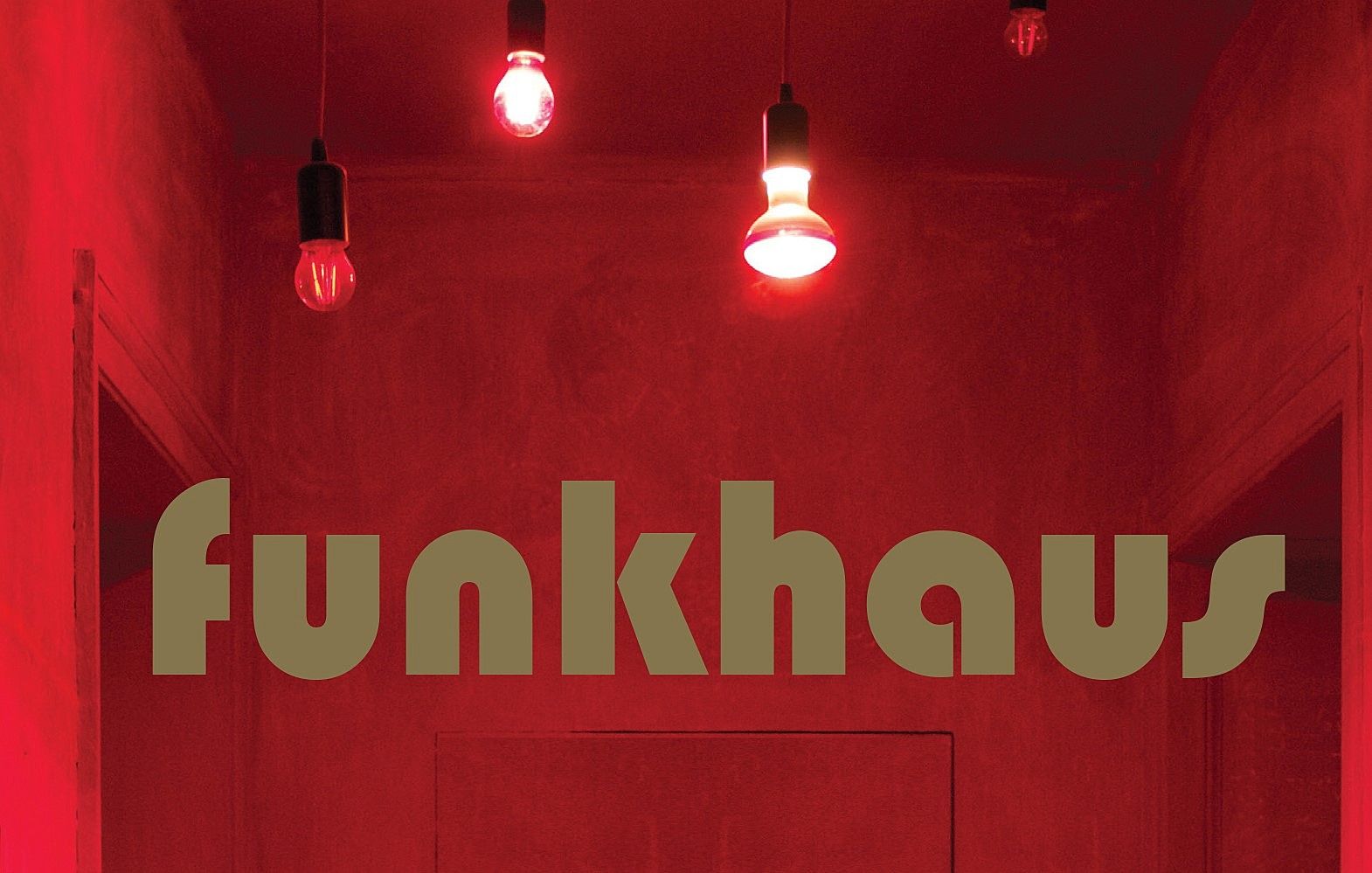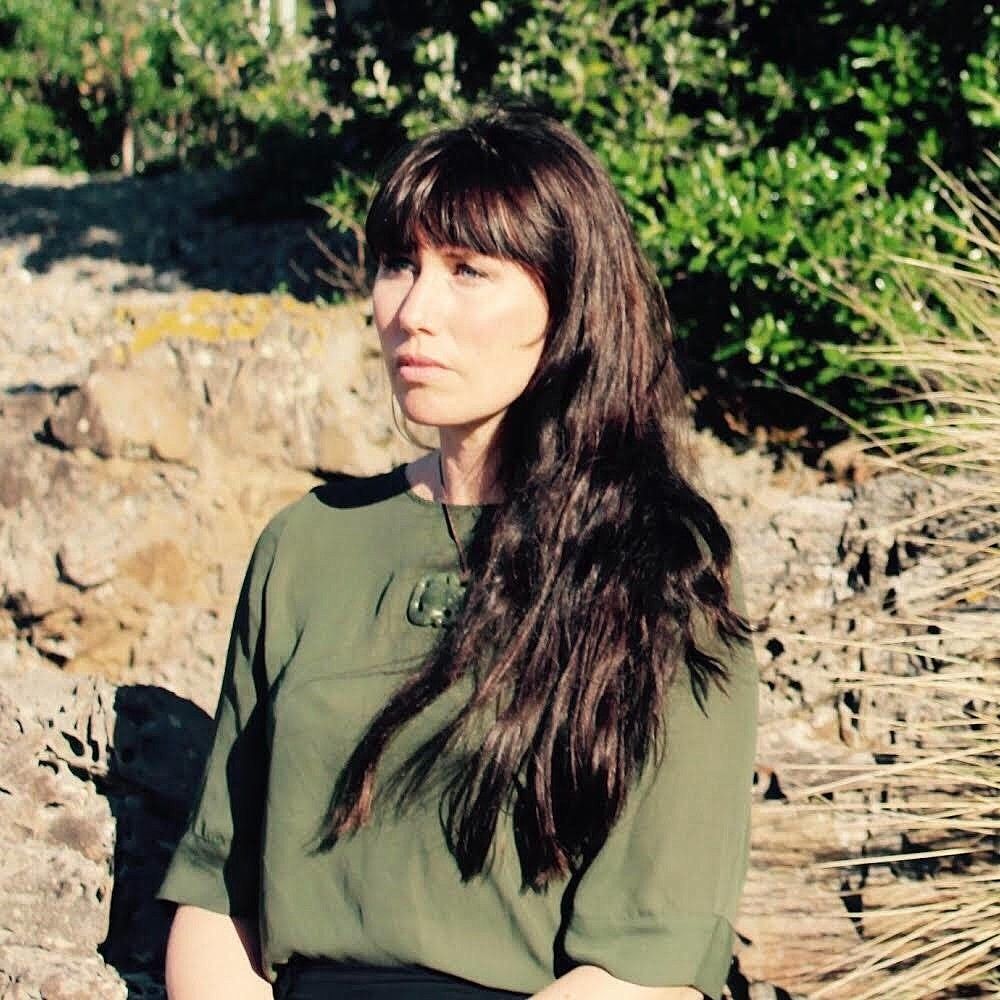The Whole Bird, Not Just the Feathers: A Review of Funkhaus by Hinemoana Baker
Arihia Latham is pieced back together by the kupu of her whanauka, Hinemoana Baker.
I had the privilege to read Hinemoana Baker’s new poetry collection Funkhaus during the pandemic. Its poems dropped locutionary surprises into my ears as I mouthed the words alive. They felt through the sludge of my heart to give it a hand job, resuscitating some feeling for the world again. I had just been through a breakup, and then suddenly was thrown into lockdown. So this little red book, with its gold-embossed lettering, found me at a time of immense aloneness.
I have no idea what to call this rebirth
And yet I’m here to name it
In some ways, it was welcome, a time to reconfigure. Her words felt like they were doing that too. Making sense of the old, calling home, telling us about a fresh world. Not a perfect one, mind, just one where you could keenly see the details.
This concept of rebirth feels potent in this collection. It’s the first book in which Hinemoana has come out as openly queer, and while that isn’t overtly explored in her poetry, it is an undercurrent and something to celebrate. There is the sense that this is a collection specific to her time living in Berlin, where she is predominantly speaking German and living this new chapter of herself, giving these poems a pared-back clarity. There is a sense of self-analysis, deconstruction and rebirth. It inhales with Hineahuone, with beginnings, and expands with Hinetītama, light cast to scrutinise, oxygenate and populate. It then exhales her transformation to Hine-nui-te-Pō, saying goodbye to people and places and to a version of herself.
I found myself rereading Hinemoana’s previous collections and her blog to get a sense of the story beneath the collection, as it wasn’t necessarily cohesively thematic. One of the last posts, albeit from some time ago, said this:
"For those of you who don't know, I live with bouts of severe depression and anxiety, and fairly serious fibromyalgia and hypermobility, so lots of pain on all fronts, but also lots of tools and experience in handling them. Looking through my journal from this last week, most of what I’ve written is around establishing routines for myself – what I like to call my ‘Management Meetings’ – which will keep my mood and my overall health up where it needs to be to tackle the emotional work of the books I want to finish here. Namely, the memoir about my Dad and me, and a collection of poetry loosely themed around aloneness."
I can only assume that this is that book, cloaking her aloneness, and I feel it is made of feathers. Flown from here in Aotearoa, soft kererū plump on tawa branches mixed with Berlin’s street pigeons on a rooftop.
The heavy mere singing its
shape, singing the stone’s skim,
The urge of birds.
You perch on a branch, utterly visible.
What is the word for suddenly?
I can’t help but wonder if all poets (myself included) suffer from anxiety and depression, and if this is our secret weapon. The depth of darkness and the heights of humour and lofty language are gifts from Hinemoana’s mind, despite it at times being hard to birth them, because of feeling unwell or in pain. The reflective nature of many of the poems does give us this sense of more objective self-contemplation, as though some of them are in fact part of this self-management process. Particularly the ‘narcissist’ poems.
Funkhaus – a German word for a place to broadcast, or send a radio signal. We are asked “to tune out the crackle and static and dial into our own receivers to a signal that has travelled a long way to reach us”. It certainly feels this way. The poems to Aotearoa, to our marae, whenua, to her aunties and cousins. Sent from cobbled roads, chimney tops and trams, where foxes roam and traffic purrs.
I am not a building I say I have no pull-out map is what I meant to say so we deal with what comes up yes right there in the passersby one horse at a time you stepping
out into traffic with your hand held up strong and me thanking every fucker for their help
The book starts with ‘mother’ – an ode to Tapu Te Ranga Marae in Wellington, which burnt to the ground in 2019. It’s enough to bring a reader to their knees, to smell the linseed oil on wood and the waft of a thousand meals filling thousands of puku and the hiss of a southerly arcing the forest upward from the marae.
Mother has hands of flax and butter.
Linseed and two-stroke, all the same
We hear the rain try and squall.
The next poem, ‘if i had to sing’, is an ode to the rebuilding of Christchurch Art Gallery Te Puna o Waiwhetū after the 2011 earthquake. So we are deconstructing and rebuilding all in the first pages. There is mourning and remembering and celebration and hope and rebirth. My heart thuds tonelessly ‘I love that for us’.
Does a thing which is reborn
Need to have died?
The poems ‘fox’ and ‘the good ship’ are beguiling in that they hold hot, red stanzas amidst seemingly beige beginnings.
The most powerful things are the ones we simply come across:
The loss of appetite
The dying in your arms of your own child
These parts could almost be missed if you weren’t like me, a catastrophist, or hadn’t found yourself almost a mother, or both.
‘The Good Ship’ is a poem that walks us through Berlin markets, and is a date and a birthday. I can’t help wondering about how high the stakes might be because of this. Her date is into aliens, and it’s not clear if his beautiful eyes are enough to overlook this.
There is dark, fresh-breeze humour in these pages, too. The narcissist poems, titled ‘narcissist advice column’, ‘narcissist alone’, ‘narcissist dips a finger’ and ‘narcissist at lunch’, paint a wry navel-gazing self-portrait that feels somehow reminiscent of an Etta James or Alberta Hunter song.
Waste your time on my errands
Squeeze your lime
On my lemons
Turn up wearing
The whole bird not just the feathers
There is again an activism in Hinemoana’s work that is smart, and certainly not verbose or literal. The poem ‘Look at what we fucking well have’ was written for Ihumātao – though from reading the poem alone it isn’t obvious – and first published in Te Rito o te Harakeke.
“The bright cicada sound of shrinking” is a visceral line that stays on my palate long after this poem has left my eyes.
We spend time at the marae in these poems, too. ‘He kanohi kitea’ takes me to the wharenui, gazing at the portraits of tūpuna:
We are warm in your cloaks.
Followed by ‘pinocchio rex’:
The wharenui burst into flames for the manuhiri
To light their smokes. Breezeblock Ladies’ Toilets glowed pink
In the travel agent sunset.
The journey and arc of the book is one of self-reflection, moving bird-like from the mother marae to the aunties and cousins to the self, to loss, to lovers, to the place the author calls home: one foot in each place. To the idea that retirement might be a figment of another generation’s privilege (ok Boomer), that our tūpuna swish tassels at the sky for us, that a dog is a companion and also a mental illness. And the book ends with this poem, ‘One hit is not enough’, which is quite possibly my favourite.
We all feel the sting of rain
and justice ha ha ha we fall in love with hip
hop, and out of love with pipelines.
We know we must not forget the password,
the carver father, the eighties, the skylines
Document this, and document this motherfucker:
The graduate, the groove, the rangatiratanga.
Break that fantasy, please wake you all up
Ngā mihi e te whanauka, Hinemoana. You pieced me back together, in this time of uncertainty and loss, with your kupu, like the superglue red clay of Hineahuone. You showed me what perspective on the self and our turangawaewae can create. You have exhaled this impressive collection on the self, the place we stand, and on the way we keep evolving and recreating into this world. I am awake.
Funkhaus is published by Victoria University Press (June 2020)

